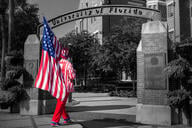You have /5 articles left.
Sign up for a free account or log in.
To the editor:
In a recent op-ed, “The Hidden Costs of Open Educational Resources,” Professor Stuart Barbier of Delta College examined the role of OER in higher education, and found it wanting. He acknowledged that OER is attractive because it saves students money, but inferior in quality and lacking in peer review. He invites us to show him other OER benefits, and we eagerly accept his invitation.
The power of OER lies in its multifaceted impact upon teaching and learning. It eliminates costs, and contributes to the urgent issue of basic needs. It grants equal access to learning materials at the beginning of the class, and helps retention and course completion. For faculty, OER affords them the freedom to create culturally relevant and community-based learning materials that are not always available through textbook publishers. At Bunker Hill Community College, where we value the cultural wealth and lived experiences of our communities, OER provides a new opportunity to activate these assets. Many times, faculty and students co-create new knowledge together through their class and field work, offering a new perspective on the ownership of knowledge in teaching and learning.
For many of us participating in this movement, OER has been a grassroots initiative in which faculty and discipline experts create materials that serve their communities. We have seen passion and commitment beyond cost-savings. Faculty from around the world find creating and curating OER material to be the best expression of academic freedom because they are not tied to one book or publisher that may not be representative of their student population or course outcomes.
In the past, there have been concerns over the quality of OER work, and the lack of peer reviewed material. Thanks to the OER community, there are several organizations like Openstax, Open Education Network (OEN) and OER Commons that provide a wealth of peer reviewed textbooks and faculty resources.
Bunker Hill Community College was part of the first Achieving the Dream OER Degree Initiative. Our faculty started with 10 sections and the program has grown to 128 sections of 46 courses. The maturation of OER has given faculty greater choices in curriculum design, and allowed for the inclusion of a broad range of materials that are contemporary as well as community-based and culturally relevant. As we iterate our OER work, we are convinced that the movement has reinvigorated the scholarship of teaching and learning, as well as the student experience in and beyond the classroom. That is more than cost savings. That is the future of education itself.
--Grace Mah
Associate dean, online learning and teaching innovations
Bunker Hill Community College
--Ceit De Vitto
Senior special program coordinator for OER/digital tools
Bunker Hill Community College

